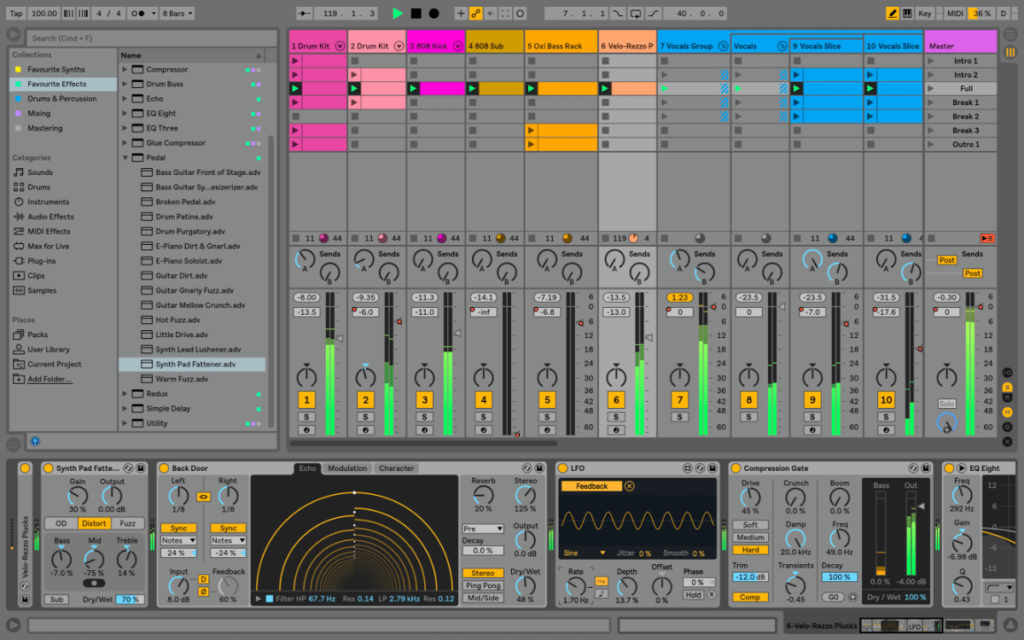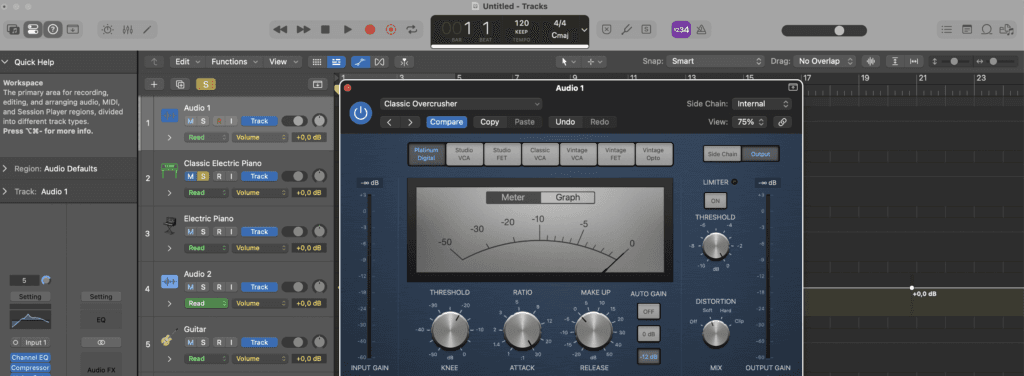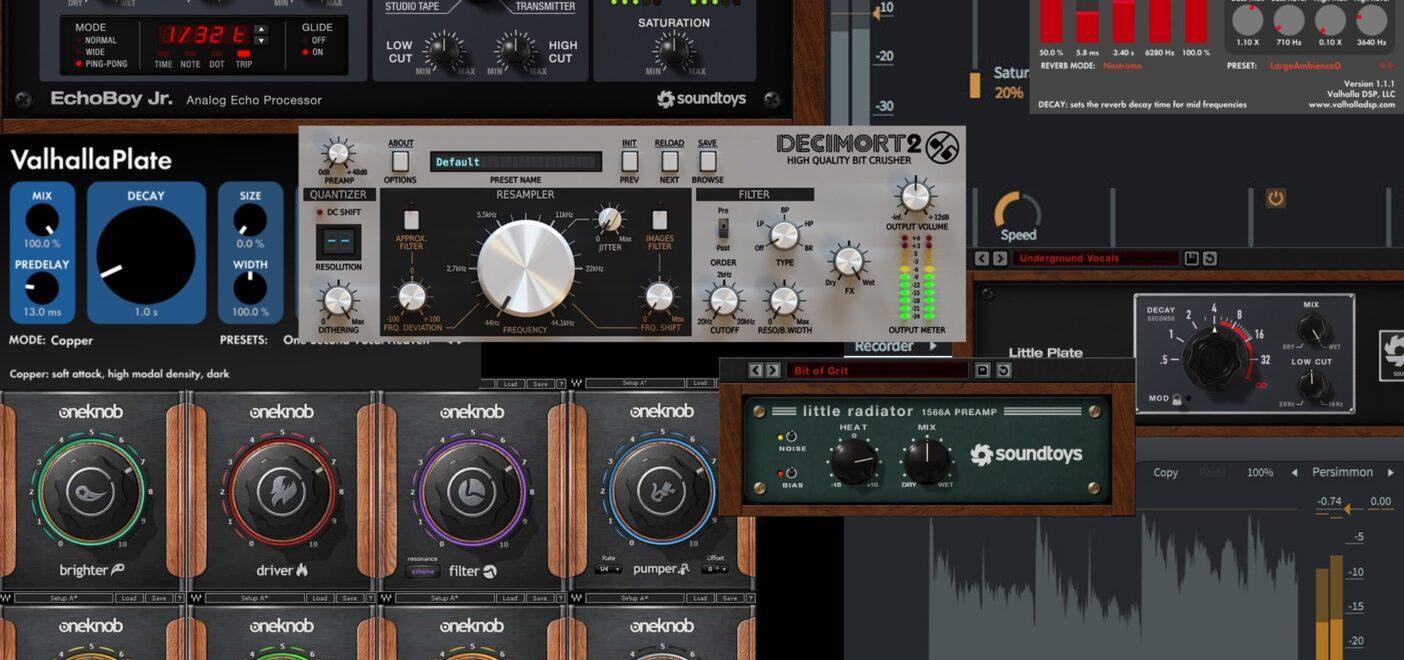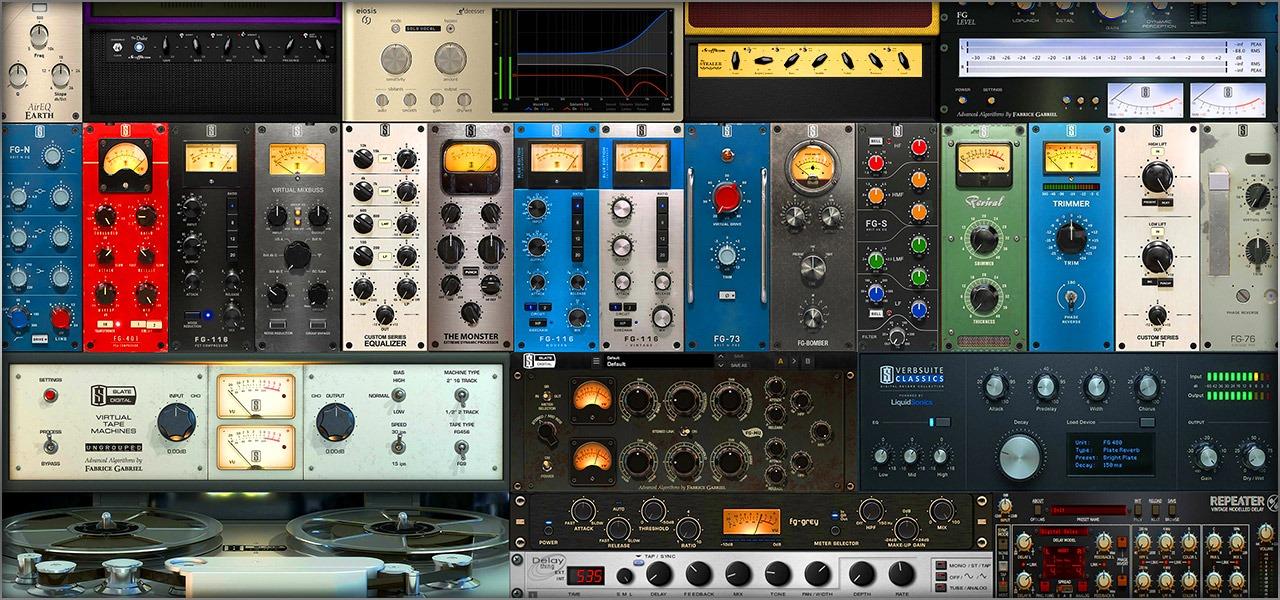Deciding which recording software to use can be overwhelming at first. In this article, we will analyze which DAW is best for you, depending on your preferences. To make things a little easier, we have narrowed down the list of DAWs to 6: Pro Tools, Cubase, Logic Pro, Ableton Live, Reason, and FL Studio. First of all, your OS will determine if you can use Logic or not. So, if you are using a PC, you can forget about using it; however, there are still 5 great options left (read more about Mac vs PC for music production here).
To make a good decision, you should ask yourself 4 questions: What type of projects will you work on? Where will you work? How do you like to work? Are you planning on using external plugins?
Using Different DAWs For Different Types Of Work
This is an important question because some sequencers work better for certain styles, while others are more versatile for multiple styles. Depending on the type of projects you are going to work on, you can decide which program is better for you. For instance, if you are going to use the DAW for EDM, then Ableton Live, Reason, or FL Studio would be good choices. If you plan on recording vocals, however, you may have a hard time working with them. Although they allow audio recording, the features are very limited, especially in Reason and FL Studio. Definitely, the type of work will influence your choice of DAW.

If your main goal is to record and mix audio, then Pro Tools, Logic Pro, or Cubase would be great choices. In my opinion, Pro Tools is more focused on audio recording and processing, while Cubase and Logic Pro offer a more versatile combination of MIDI and audio. Although all three have advanced features for audio and MIDI, depending on your needs, you may prefer one over the others.
Where Will You Work?
Choosing a DAW also depends on where you work. Any DAW will work fine in your studio, but some are better suited for external recording. For example, Ableton Live is designed to create music in your studio and also in live sessions, giving you a lot of versatility to record and improvise. This can be a huge advantage if you work with electronic music, which is why Ableton Live is one of the top DAWs for EDM.
How Do You Like To Work?
This may seem like a silly question, but it’s not. Some programs, like Reason, FL Studio, or Ableton Live, use loops to work. For example, you start by creating drum loops, then you create a bass loop, a synth loop, and so on. You can easily copy and paste those loop tracks throughout the song to extend it, but as the project grows, creating new loops can become a bit messier. For instance, in FL Studio, you can only have one loop per line in the song view. While this limitation makes it easy to add that loop anywhere you want, it can make your project cumbersome if you have many different loops for the same instrument. This workflow clearly suits electronic music, as loops tend to repeat with slight changes, which isn’t very useful for other styles that change more frequently.

Are You Planning On Using External Plugins?
Usually, you would say yes or maybe. Each DAW supports a different plugin format, and some plugins won’t work with all of them.
Pro Tools uses AAX, which typically costs more; Logic Pro allows AU plugins; Cubase, Ableton Live, and FL Studio work with VST plugins; and Reason only supports Rack Extensions with a more limited library. VST probably ranks as the most widely used format, giving you an advantage. Numerous unique Waves plugins are also worth investigating for your DAW.
Conclusion: Choose The DAW That Is Best For You
Choosing a DAW is a matter of personal taste, but after reading this article, I’m sure you will be able to make a good decision. So, if you’re planning to work only with electronic music and do little audio recording, then go for Ableton Live, FL Studio, or Reason. However, if you’ll have a different type of project, or you plan to open a recording studio in the future and record other artists, you should choose Cubase, Pro Tools, or Logic.
À propos de l'auteur

Dídac
PDG et fondateur de MasteringBOXDídac est un ingénieur audio professionnel, un producteur de musique et un ingénieur logiciel. Il est le fondateur de MasteringBOX et l'auteur de nombreux articles sur le blog.
Commentaires
I am beginner and I’ve learnt mixcraft, Please tell me your views before I go too far
Reason for me, my deciding factor is experience, familiarity, rack style interface & it’s large soundbank.
At the moment I am using fl studio 20, producer edition, but most of the time I’m using Reason12 since I am subscribing
Studio One of presonus is the most apreciatted for me.
Appreciate Ableton for electronic music, Fruity too, to use a lot of plugins Reason or Pro Tools, but for me the most versatile is SONAR, only my opinión
I have worked with Reason since year 2000, and will stay with it. Currently using v.6.5, but will upgrade at some point to newest version, i will probably wait for the version 10.
Too bad theres no VST plugins for it, but refills and rack extensions are ok, besides, reason 9 includes pretty big bunch of sounds in it.
Logic Pro X is great, but i seriously think about Studio One
what about acid it seems to be the forgotten program all the time but its great!
Recording & Mixing-Pro Tools 10HD & Cubase 8 Pro! for Beats FL Studio 10!
Does not download to mac???
Creo que Nuendo o Cubase de steinberg ofrecen más posibilidades. Yo trabajo con ellos desde hace años con resultados óptimos. Los vst tienen gran calidad y no suelen dar problemas. Tienen un manejo sencillo para principiantes y muchas posibilidades para trabajos más profesionales.
Thanks for your comment, although many of the DAWs are capable of doing similar things, some advanced features aren’t available. Does Reason or FL studio allow audio quantization with a similar process as AudioWarp in Cubase? FL Studio only offers slicing for instance. It is clear to me that some DAWs are designed better for certain types of music, that’s a bit what this article is about, I’m sure you wound’t use FL Studio for Jazz.
I don’t consider them better but to make the comparison simpler I reduced the list to the most used (or the ones I think are more used).
I thought Rack Extensions were only made by Popellerhead but I see there’re other vendors too, I will correct it now. However I also ment to say that most companies such as Waves, Antares, Native Instruments, etc. do not develop for Reason.
Reason allows Plugins. They are called Rack Extension – you can buy them in the Propellerhead store.
Lol! Is this article based on a research from 10 years ago? I am a power user in 5 of this DAWs and work on every day. Differences are more about the work approach, because in the present day all of them are capable of doing same things.
DAW I use is Sonar. Why others are considered better?
Laisse un commentaire
Connecte-toi pour commenter.


